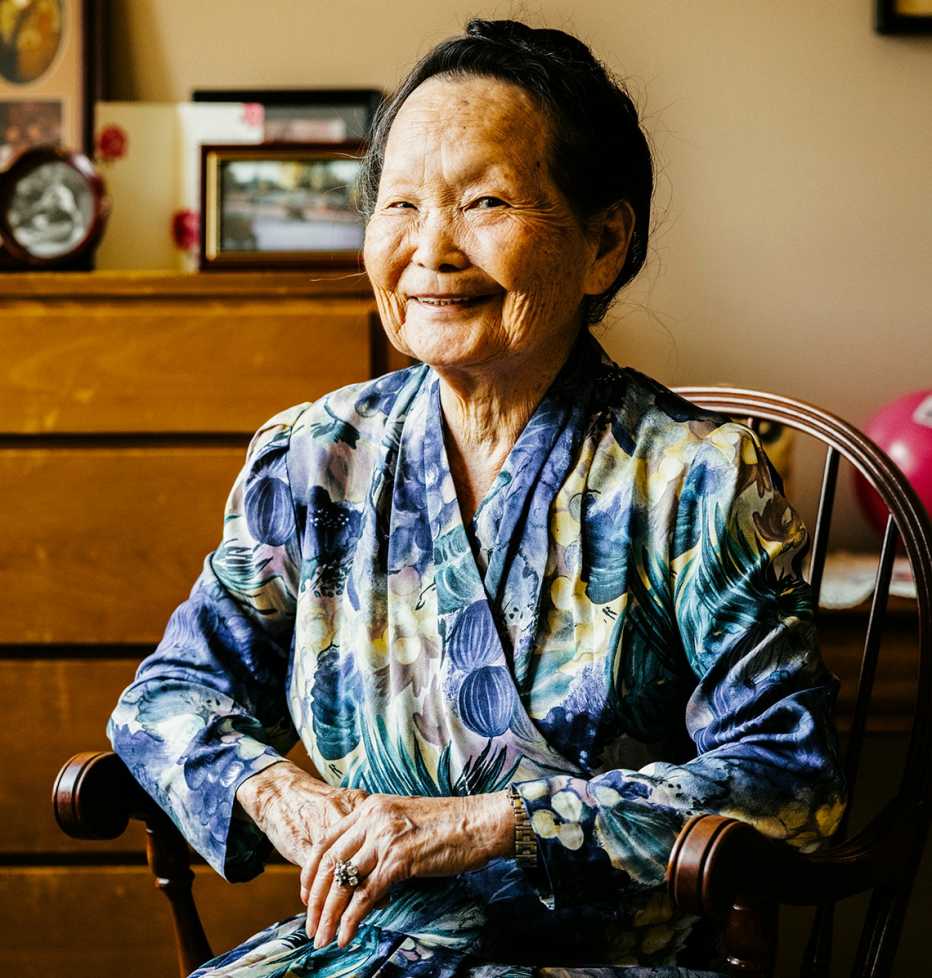AARP Hearing Center
Here’s How to Avoid a Bad Guardianship
• Careful planning can ensure that you’ll have a say in who will look after you if you ever need help.
• Make peace with your loved ones. Judges often appoint professional guardians when families are feuding, so try to make up before problems escalate. Whatever the cost, it will likely be cheaper than a professional guardian.
• Power up. Create one durable power of attorney for finances and another for medical care. One person can fill both roles, and you can also name your POA designee as your guardian of choice.
• Instruct. Explain to your designee how to do the job (good sources are consumerfinance.gov/managing-someone-elses-money and guardianship.org/standards).
• Trust, but verify. In your POA document, create checks and balances by requiring your appointee to provide a periodic accounting to another trusted friend or relative.
Larry Davis tried his best to help his stepmother, but distance made it difficult. Davis lived with his wife in Sonoma County, Calif.; Kise (pronounced KEEˇ-say) Davis lived in Las Cruces, N.M., 1,200 miles away. She was struggling with dementia, and Larry, who held power of attorney over her affairs, spoke with her regularly, kept tabs on her via local contacts and visited as often as he could. He was working toward moving her to an assisted living facility near his home.


That began to seem more urgent in the fall of 2016, when Kise, then 85, began complaining that a longtime acquaintance, Larry Franco — a handyman who helped her with household tasks — was stealing from her. But Kise’s illness sometimes made her paranoid; she’d lodged such accusations against friends before. Larry, who was 74, planned to fly out and investigate after the holidays. Then, shortly before Christmas, he came home from a shopping trip to learn that Kise had gone missing.
“This is Kise’s neighbor Donnie,” said the voice on the answering machine. “I thought you should know that a van just came and took her to some kind of institution.”


Terrified that harm had come to Kise, Larry called Franco and demanded to know what was going on. “I got in over my head,” Franco told him. He explained that Kise had transferred her power of attorney (POA) to him, then turned suspicious and hostile. Franco’s lawyer had advised him that the best way to ensure Kise was properly cared for was to petition a judge to appoint a professional guardian, who would take over legal responsibility for her well-being.
Kise’s newly appointed guardian, a company called Advocate Services of Las Cruces, had placed her in a dementia-care facility by order of the court. It took Larry more than a week to reach her there. When they finally spoke, on Christmas Eve, she seemed to believe she’d booked herself a room, though now they wouldn’t let her go. “They’ve put me in an insane asylum,” she told him, weeping. “Please come and get me out of here.”
Larry was furious that no one had informed him before letting strangers lock her away, but he assumed he could quickly set things right.
He was wrong.
A Court-Appointed Guardianship
An estimated 1.3 million adults are under guardianship in this country, perhaps 85 percent of them over 65. The court-ordered supervision, designed to ensure that mentally or physically incapacitated people are cared for and protected, can be partial (often covering only finances and known as a conservatorship) or full. For full guardianship, a judge transfers the individual’s civil rights — including the right to sign contracts, make medical decisions, and choose with whom to associate and where to live — to the guardian. The most common arrangement is for the judge to appoint a family member, who may draw on the person’s estate to cover approved expenses. If there is no available or appropriate family member, a professional or company may be appointed. The professional can charge the estate to handle the client’s affairs and to pay for necessary services, with court approval.
In most instances, experts say, guardians perform conscientiously and their clients benefit. Still, in an unknown number of cases, a guardianship can go disastrously wrong. A 2010 federal report identified hundreds of allegations of abuse, exploitation or neglect by guardians over 20 years. Although family members committed the majority of these misdeeds, the crimes that usually make headlines are those of professional guardians. Last year saw a bumper crop. The owner of a Las Vegas guardianship company was indicted on more than 200 felony charges for allegedly bilking more than 150 people out of their life savings. In New Mexico the two owners of Ayudando Guardians Inc. — along with one owner’s husband and son — were arrested for conspiracy, fraud, theft and money laundering in connection with an alleged plot to embezzle $4 million from clients’ trust accounts. The CEO of another Albuquerque-based company, Desert State Life Management, pleaded guilty to wire fraud and money laundering; he faces eight to 12 years in prison and must pay $4.8 million in restitution to more than 70 special-needs clients.
Yet even guardianships that fall within the letter of the law can wreak emotional and financial devastation. Although all those involved may think their motives and actions are honorable — as in the case of Kise Davis — the slow, costly workings of the court system can cause untold confusion and pain. Moreover, activists charge that in some cases, unscrupulous professional guardians have turned legally sanctioned exploitation into a cottage industry, abetted by greedy attorneys and pliable judges. “The people who are supposed to solve the ward’s and family’s problems instead profit enormously from creating a whole bunch of new ones,” says physician Sam Sugar, founder of Americans Against Abusive Probate Guardianship.
Testifying in April 2018 before a U.S. Senate committee, Nina Kohn, a law professor at Syracuse University and a principal drafter of the Uniform Guardianship, Conservatorship, and Other Protective Arrangements Act (a model law designed for adoption by any state), laid out an array of problems with the U.S. guardianship system. One issue, she told the legislators, is that “a subset of guardians act in ways that violate the rights and insult the humanity of those they serve,” whether intentionally, negligently or through inadequate training. Advocacy groups (including AARP) have struggled for decades to repair the gaps in the country’s patchwork of guardianship laws. Lately, there have been signs of progress. But as Larry Davis learned when his stepmother landed in a locked unit, there’s still a long way to go.
A Caregiver's Dilemma
Born in Japan, Kise had fallen in love with Larry’s father, an Army translator, when he was a new divorcé stationed in her country; Larry traveled from San Diego to meet her shortly after their wedding, in 1956, when he was 14. Tiny, vivacious and artistic, Kise was only 11 years his senior, and he saw her as a kindred spirit: “She’s a strong personality,” he says. “She’s very attached to doing things her way.”
Larry credits Kise with repairing the frayed bond between him and his dad. He stayed with the couple often after they moved to the U.S. — first at White Sands Missile Range in New Mexico; then in Newport Beach, Calif., where Kise opened a dress shop, selling her own designs; and, finally, in Las Cruces, where she remained after becoming widowed in 1993.
When Kise first began having memory problems, in 2014, Larry took her to her doctor, who ran tests that showed mild cognitive impairment. Kise drove Larry to a lawyer’s office, where she gave Larry power of attorney. Kise had long spoken of moving to Sonoma, near Larry, when she could no longer care for herself; for now, though, she insisted on staying put. At 82, she was still sharp witted, eager to greet customers at the silk-flower stall she ran at the farmers market on weekends. Larry, a retired educator with a doctorate in cultural psychology, knew that pushing too hard could push her away. So he flew home and checked in frequently.
As Kise’s condition worsened, Larry had to intervene more often. In 2015 she abruptly transferred power of attorney to a woman friend. Then she began complaining that the friend was stealing her possessions. After the sheriff’s department determined that the items — including a pistol, which could not be found — had actually been misplaced, Larry came for another visit and regained her POA. He asked Adult Protective Services (APS) to assess whether Kise could safely continue to live on her own; she passed the evaluation, though the agent suggested she get some help. Larry hired a home-care service to come in weekly. But Kise soon canceled the contract, saying it was a waste of money.
In June 2016, Larry returned to Las Cruces and took Kise to a geriatric physician, who diagnosed her with moderate dementia and recommended that she give up driving. Larry straightened out Kise’s checkbook, taxes and overdue bills; he interviewed several elder-care companies, but she rejected them all. Before leaving town, he asked her neighbors to call him if anything seemed amiss. Back in Sonoma, Larry and his wife, Marcia, began looking for a nearby assisted living residence that would fit Kise’s needs.




































































